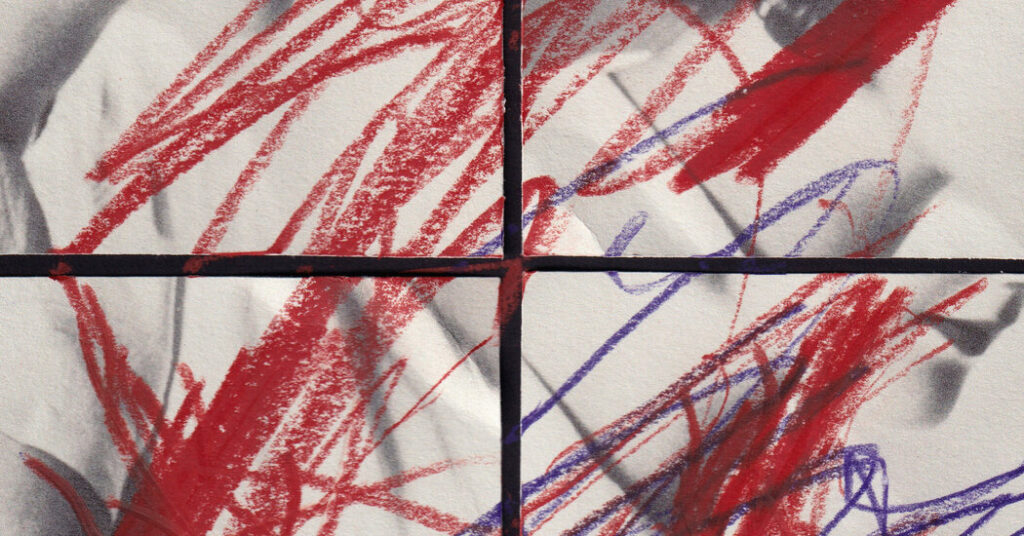The Epstein emails are damning, but hardly surprising. My reaction was something like that famous scene from “Casablanca” when Captain Renault proclaims to Rick: “I’m shocked — shocked — to find that gambling is going on in here,” seconds before he is handed his own winnings. But the emails are just a piece of the larger story: the lengths this country and the systems we’ve created — from the smallest jurisdiction to the national stage — will go to maintain the power of men at the expense of women’s bodies.
We’ve known all along that President Trump must be in the Epstein files. The president tried to make it a “Democrat” problem by demanding the Justice Department investigate Democrats with ties to Mr. Epstein. Then, perhaps sensing MAGA discontent, he announced his support for releasing the files, writing on Truth Social: “We have nothing to hide.”
Mr. Trump is right. He has nothing to hide because he stands to lose nothing. Whatever exists in those files surely will not be enough to wrest him from his perch. At least not yet. Even those who have shown some remorse — Larry Summers, for example — took years. Other men named, like Steve Bannon, Peter Thiel, Noam Chomsky and Michael Wolff, have sought to distance themselves from Mr. Epstein or have not responded to press requests.
We’ve been here before. For so many, the Epstein saga echoes a once-hopeful #MeToo movement, when it seemed possible to reform the male-dominated systems that kept women down. The movement led to a handful of convicted men, but also fed a colossal backlash that reminds us how our country has never adequately protected women. The backlash also, arguably, contributed to the second election of Mr. Trump, who has overseen an era that might be unique in its willingness to sacrifice democratic institutions and American norms to control women.
As I write, there is a White House proposal that aims to lower the Office on Violence Against Women’s stature within the D.O.J. and cut its shoestring budget by nearly 30 percent. This would devastate shelters, advocacy programs and violence prevention measures, and escalate the danger for victims of intimate partner and familial violence in all corners of the country.
At the same time, a report on violent deaths of girls and women from 2014 to 2020 noted that laws constraining abortion providers were associated with a 3.4 percent rise in the rate of homicides related to intimate partner violence. We are being killed for our own lack of choice. An estimated one in 20 women in the United States gets pregnant from rape or sexual coercion, which equates to a whopping six million women with violence-initiated pregnancies. Six million. Two-thirds of the women who became pregnant from rape were injured during their assaults.
Are you as angry as I am yet? The misogyny that is such a casual part of Mr. Trump’s entire modus operandi gives license to systems that prioritize men’s freedoms over women’s lives. A young man in Oklahoma named Jesse Mack Butler was recently facing decades in prison for sexually assaulting two teenage girls, both of whom said he had strangled them (he was 16 and 17 at the time and is 18 now). He strangled one of those girls so severely that her doctor told her she was lucky to be alive according to Oklahoma Watch. But a deal was cut and he ultimately got community service and mandatory counseling.
Compare his case with a woman I’ve been speaking with from her current home at the North Carolina Correctional Institution for Women. One night in 2012, the woman, Latina Ray, and her boyfriend, Lawrence McQueen, got into a fight. She told me that he had hit her many times. This night was different, though. On this night, Ms. Ray said, Mr. McQueen used the handle on a gun to assault her. And she said that he beat her so badly that he broke a bone in her face, blinding her in one eye. They wrestled over the gun and she managed to get hold of it and shoot, killing him. She was assigned a public defender. But Latina Ray was Black and poor and knew better than to trust her future to the judicial system. So she took a plea deal. In her mug shot, you can see her mangled eye.
Our self-defense laws say that if you are about to be killed or suffer grievous bodily harm, you are entitled to defend yourself. Not Latina Ray. She was entitled to take her beating and keep quiet about it. That is what her life till then had taught her. Many of Mr. Epstein’s victims — of which there are over a thousand — also knew these lessons.
The same violence perpetrated on these real-life women is increasingly replicated across online platforms. Sora 2, the generative video tool released by OpenAI, is helping creators on TikTok and X create fake choking videos featuring teenage girls in which they are depicted as struggling, crying and falling.
Victims in deepfake technology are overwhelmingly women, and a 2019 study found that a shocking 96 percent of deepfake videos were pornographic and nonconsensual. Such technologies are used as recruitment tools for those who want to roll back women’s rights. Female congresswomen are 70 times as likely to be targeted by deepfake pornography compared with their male counterparts. The tech companies have so far failed to show much willingness to sufficiently regulate their company algorithms. Meanwhile, our president tells a female journalist, “Quiet, piggy,” without consequence.
Given that men dominate in technology companies, and as policymakers, judges, police officers and even players on gaming platforms, perhaps we ought to expect this, we women. Perhaps we ought to take our lumps and be quiet about it. Is this what we get for wanting a life beyond diapers and dinner? The question is rhetorical, of course, because we’ve suffered from violence at the hands of men for far longer than we’ve had our nice little careers.
Careers that some women, bafflingly, believe we are not entitled to. Last month, Helen Andrews, a recent guest on Ross Douthat’s “Interesting Times” podcast, wrote an essay in Compact magazine that claimed that the feminization of workplaces led to the rise of cancel culture and “wokeness.” This development, she said, signaled the downfall of many institutions, including our system of law. Evidence she cites was that almost 60 percent of law students were women last year. She writes this knowing, I assume, that the United States still has no federal law against marital rape, so if women are somehow ruining our legal system with all our messy emotion, we’ve been pretty slow to act. Apparently our very presence signals imminent systemic collapse.
Ms. Andrews ignores an inconvenient fact: Women may be attending law school in higher numbers, but their careers often stall in their 30s and early 40s, their childbearing years. Ms. Andrews suggested that setbacks in workplace feminization would be corrected once men aged out of the top positions in politics, business and academia. But if that were true, we wouldn’t be so far behind in terms of elite academic institutions headed by women. As of 2022, only 22 percent of these institutions had a woman in the top leadership position. Women also make up only 14 percent of leaders in the global tech industry, and the U.N. estimates it will take nearly a century before equality is reached in positions of leadership.
So, yes, I am entitled to my anger. We all are. In recent days, I have lost count of the number of friends who have told me they are struggling through this Epstein moment, reminded of their own assaults at the hands of men. The promise of the #MeToo movement seems further than ever.
One of the women who reached out to me was a friend and colleague, Rebecca Hamilton, who wrote in The Washington Post that she had been raped years prior by someone with significant power and authority over her. She described how it took two years to report her rape. “What is brutal about the current news cycle,” she wrote to me in an email, “is the sense that it came very close to killing me to fight for just one high-net-worth individual to no longer have unfettered access to young women — already a pretty low bar — and meanwhile, he was just one person in an overall structure that seems designed to enable yet more of the same.”
Her story reminds us that we are entitled to demand a life free from the violence of men. We are entitled to demand more from our leaders, to demand an open investigation into the Epstein files, to demand accountability for the perpetrators regardless of political party or cultural cachet, to demand justice for the children and women trafficked by Mr. Epstein, and perhaps more than anything to demand actual real change in which a broken system is compelled to reinvention.
In the meantime, we are entitled to all of our rage, and men, frankly, we would welcome a moment of gratitude from you that we have not burned this whole damn human enterprise down just yet.
I don’t anticipate that the Epstein files will reveal what we don’t already generally know, or that they’ll result in any criminal accountability. But just as misogyny from the top is replicated throughout a whole culture, I still believe that meaningful change can transpire. Maybe the Epstein files will put the powerful on notice: When the sins of a private life are as egregious as those of the Epstein saga, they demand public consequences.
Most of the people to have successfully held Mr. Trump to account have been women, starting with E. Jean Carroll. And it was heartening how the representatives Nancy Mace, Lauren Boebert and Marjorie Taylor Greene didn’t falter in the face of his pressure campaign. These women have shown all of us the courage to demand more of these systems. And more than anything, they’ve shown us that our lives are worth fighting for.
Rachel Louise Snyder (@RLSWrites) is a professor of literature at American University. She is the author of “No Visible Bruises: What We Don’t Know About Domestic Violence Can Kill Us” and “Women We Buried, Women We Burned.”
Source photograph by FPG/Getty Images
The Times is committed to publishing a diversity of letters to the editor. We’d like to hear what you think about this or any of our articles. Here are some tips. And here’s our email: [email protected].
Follow the New York Times Opinion section on Facebook, Instagram, TikTok, Bluesky, WhatsApp and Threads.
The post The Epstein Saga Awakens a Familiar Feminist Rage appeared first on New York Times.




